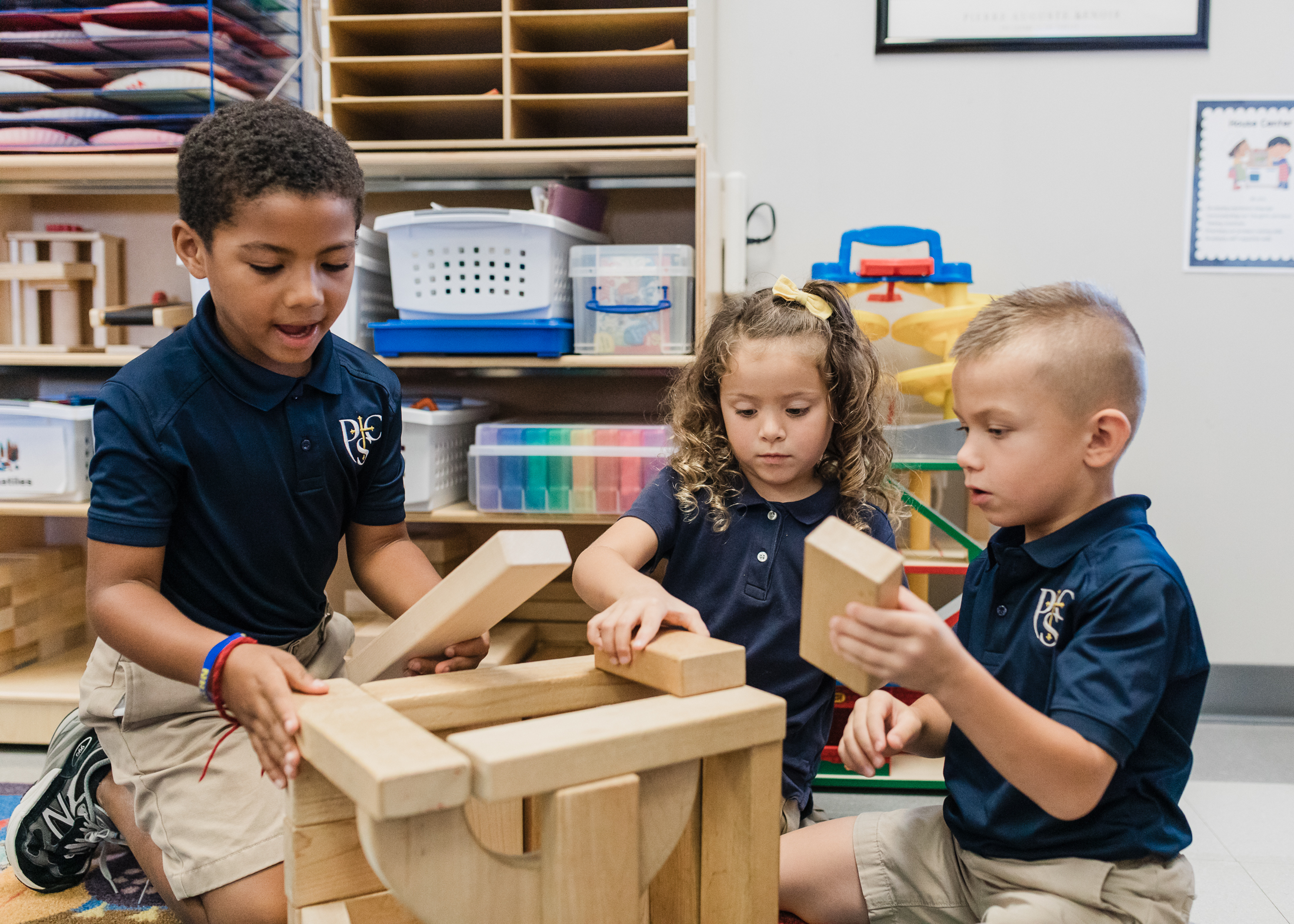Teaching Soft Skills to Children: A Guide for Parents
In today’s fast-paced and increasingly digital world, academic achievements and technical skills are not enough to ensure success. Employers, educators, and psychologists emphasize the importance of “soft skills” — interpersonal and emotional intelligence traits that help individuals navigate relationships, communicate effectively, and adapt to change. While schools generally focus on teaching academic knowledge, the responsibility of teaching soft skills often falls on parents and caregivers.
Soft skills are essential for children’s personal growth, emotional well-being, and future success in their careers and relationships. In this guide, we will explore why soft skills matter, their lifelong benefits, and how to teach them to children, preteens, and teenagers. We’ll also show how classical Christian schools come alongside parents to develop soft skills in students.

What Are Soft Skills?
Soft skills, also known as interpersonal skills or people skills, include a range of abilities that contribute to effective communication, teamwork, problem-solving, and emotional intelligence. Some key soft skills include:
- Communication – The ability to express oneself clearly and listen actively.
- Empathy – Understanding and sharing the feelings of others.
- Adaptability – Being flexible and open to change.
- Critical Thinking – Analyzing information objectively and making reasoned decisions.
- Collaboration – Working effectively with others towards a common goal.
- Time Management – Organizing and prioritizing tasks efficiently.
- Resilience – Bouncing back from setbacks and failures.
- Conflict Resolution – Handling disagreements constructively.
- Self-Discipline – Controlling impulses and staying focused on goals.
Developing these skills early in life prepares children to thrive in their personal and professional lives.

Why Teaching Soft Skills to Children Is Important
1. Improves Emotional Intelligence and Mental Well-Being
Children who learn soft skills such as emotional regulation, empathy, and communication develop higher emotional intelligence. This leads to better relationships, reduced stress, and greater self-awareness. It also helps them manage anxiety, frustration, and disappointment in healthy ways.
2. Strengthens Social and Family Relationships
Children with strong soft skills can build and maintain meaningful relationships with peers, family members, and teachers. They develop empathy, conflict resolution abilities, and effective communication, which foster healthy connections and reduce social conflicts.
3. Encourages Independence and Decision-Making
As children grow, they face situations requiring independent thinking and decision-making. Teaching soft skills empowers them to make responsible choices, handle peer pressure, and navigate life’s challenges with confidence.
4. Enhances Academic Performance
Soft skills contribute to academic success. Time management helps students complete assignments on schedule, critical thinking improves problem-solving in math and science, and communication skills allow them to articulate ideas effectively.
5. Prepares Them for the Future
In the modern job market, employers prioritize soft skills alongside technical knowledge. Teamwork, adaptability, and problem-solving abilities are crucial in almost every career field. Teaching children and teens these skills early gives them a competitive edge when they enter the workforce. It also prepares them for whatever life brings their way, like parenting, leadership opportunities, overcoming difficulties, and more.

How to Teach Soft Skills to Kids, Preteens, and Teens
Teaching soft skills should be an ongoing process, adapted to each stage of childhood development. Here are effective strategies for different age groups:
For Young Children (Ages 3-7)
- Model Positive Behavior – Young children learn best by observing adults. Demonstrate good communication, patience, and empathy in your daily interactions. Practice forgiveness.
- Encourage Play-Based Learning – Games like role-playing, pretend play, and storytelling teach children how to express emotions and cooperate with others.
- Teach Basic Manners and Respect – Reinforce polite behavior such as saying “please” and “thank you,” sharing, and waiting their turn.
- Use Emotional Labeling – Help children identify and express their feelings by using phrases like, “I see you’re feeling frustrated. Let’s talk about it.”
- Introduce Problem-Solving Skills – Guide children to solve small conflicts with siblings or friends by suggesting solutions and discussing their choices.
For Preteens (Ages 8-12)
- Encourage Team Activities – Sports, group projects, and extracurricular activities help preteens practice collaboration and leadership skills.
- Promote Open Communication – Create a safe space where preteens feel comfortable expressing their thoughts and emotions without fear of judgment.
- Assign Responsibilities – Give them household chores or personal projects that require time management and accountability.
- Teach Conflict Resolution – Discuss different ways to handle disagreements, emphasizing the importance of listening and compromise.
- Foster Empathy Through Volunteering – Encourage participation in community service to help them understand different perspectives and appreciate generosity.
For Teenagers (Ages 13-18)
- Encourage Independence and Decision-Making – Allow teens to make choices about their activities, schedules, and responsibilities, guiding them when necessary.
- Discuss Real-Life Scenarios – Talk about workplace dynamics, relationships, and financial literacy to prepare them for adulthood.
- Support Goal-Setting – Help teens set and achieve personal goals by teaching them how to break tasks into manageable steps.
- Teach Professionalism and Networking – Encourage them to practice interview skills, write resumes, and understand workplace etiquette.
- Practice Emotional Resilience – Help them navigate setbacks by discussing failures as learning opportunities and promoting a growth mindset.
Did you know that Providence Classical School provides Life Seminars throughout the year for all 7th-12th grade students? These short courses are built into our regular school day and include topics such as personal finance, home repairs, self-defense, and study skills.
Schedule a tour to learn more!
How Classical Christian Education Develops Soft Skills
Classical Christian education (CCE) is a time-tested approach that emphasizes the development of wisdom, virtue, and eloquence. It integrates faith, character formation, and a rigorous academic curriculum to produce well-rounded individuals. CCE naturally fosters essential soft skills in many ways:
- Promotes Respect and Virtue – The emphasis on Christian character, respect for authority, and the pursuit of truth helps students develop integrity and a strong ethical foundation. Teachers model excellent soft skills in front of students and partner with parents to train Christ-like habits. Serving together as a school community promotes empathy and generosity.
- Helps Children Grow and Learn with Joy – Classical schools give children time to be children. Through play, exploration, creativity, and strong Christian community, they develop soft skills and a love for learning.
- Trains Organization, Time Management, and Life Skills – Classical Christian Schools like Providence build time into the school day to train students how to use planners, take notes, keep up with assignments, and budget time. They also teach life skills like etiquette, personal finance, and study skills.
- Develops Strong Communication Skills – Classical education prioritizes thoughtful reading, writing, discussions, and public speaking, equipping students with confidence in verbal and written expression.
- Encourages Critical Thinking and Rhetoric – Through the study of logic and rhetoric, students learn to articulate ideas clearly, think critically, and engage in meaningful discussions.
- Fosters Collaboration and Leadership – Socratic discussions, group projects, leadership opportunities, and mentorship programs cultivate teamwork and leadership skills.
- Instills Resilience and Perseverance – Studying classical texts, mastering Latin and Logic, and engaging in challenging academic pursuits like a Senior Thesis teach students discipline, patience, and perseverance.
By integrating these principles, classical Christian education equips students with both intellectual and interpersonal skills, preparing them for success in all aspects of life.

Soft skills are invaluable assets that shape children’s character, relationships, and future success. By actively teaching and reinforcing these skills at different stages of development, parents can equip their children with the tools they need to navigate life’s challenges with confidence and grace. Whether through play, real-life experiences, or guided conversations, the effort put into fostering these skills will benefit children for a lifetime.
Start today — model empathy, encourage problem-solving, create opportunities for growth, and consider partnering with a classical Christian school. The lessons you teach will shape your child into a capable, compassionate, and well-rounded individual ready to thrive in an ever-changing world.
“Therefore, as God’s chosen people, holy and dearly loved, clothe yourselves with compassion, kindness, humility, gentleness and patience.”
Colossians 3:12













